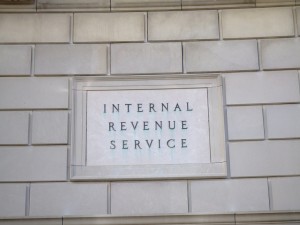
With a new Supreme Court decision that just institutionalized same-sex marriage nationwide, a lot of religious schools are wondering how far the government will go in pressuring religious schools to accept the new status quo. The New York Times reported on these concerns last week just before the ruling came down:
Conservative religious schools all over the country forbid same-sex relationships, from dating to couples’ living in married-student housing, and they fear they will soon be forced to make a wrenching choice. If the Supreme Court this month finds a constitutional right to same-sex marriage, the schools say they will have to abandon their policies that prohibit gay relationships or eventually risk losing their tax-exempt status.
…In a recent letter to congressional leaders, officials from more than 70 schools, including Catholic high schools and evangelical colleges, said that a Supreme Court ruling approving same-sex marriage would put at risk all schools “adhering to traditional religious and moral values.”
Perhaps more concerning than the concerns of religious institution leaders is the fact that the Obama administration has failed to rule such treatment out, as evidenced in the hearings on the latest marriage case:
“In the Bob Jones case,” Justice Samuel A. Alito Jr. said, referring to the 1983 Supreme Court decision, “the court held that a college was not entitled to tax-exempt status if it opposed interracial marriage or interracial dating. So would the same apply to a university or a college if it opposed same-sex marriage?”
Solicitor General Donald B. Verrilli Jr., representing the Obama administration, said that was possible. “I don’t think I can answer that question without knowing more specifics,” he said, “but it’s certainly going to be an issue. I don’t deny that. I don’t deny that, Justice Alito. It is going to be an issue.”
Chief Justice John G. Roberts Jr. asked a similar question. “Would a religious school that has married housing be required to afford such housing to same-sex couples?”
Mr. Verrilli did not rule that out either but said it would “depend on how states work out the balance between their civil rights laws.”
It’s clear that the next battle is brewing over religious liberty, and it won’t just be fought in the courts. People are already having their businesses threatened for disagreeing with same-sex marriage, and they may soon be asked to choose between following their religious convictions or being subjected to crippling tax increases by the government. Electing a President who respects religious liberty has always been important, but now the stakes are clearer than ever.
Nick Arnold is a researcher for American Principles in Action.


